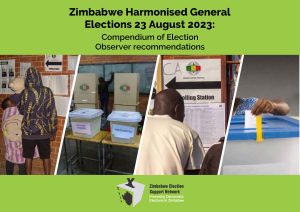Introduction
This report presents an update of the political environment and electoral processes ahead of the Mutoko North Constituency and the Chegutu Rural District Council (RDC) by-elections. A vacancy in Chegutu RDC, Ward 16 occurred following the death, on 10 September 2018, of the ZANU-PF councilor, Silas Chikati, who had been declared duly elected in the 30 July harmonized elections. According to the Zimbabwe Electoral Commission (ZEC) electoral roadmap for the by-election, in line with the Electoral Act, on 21 September 2018, the Chief Executive Officer of Chegutu RDC notified the Chief Elections Officer of the vacancy…more
